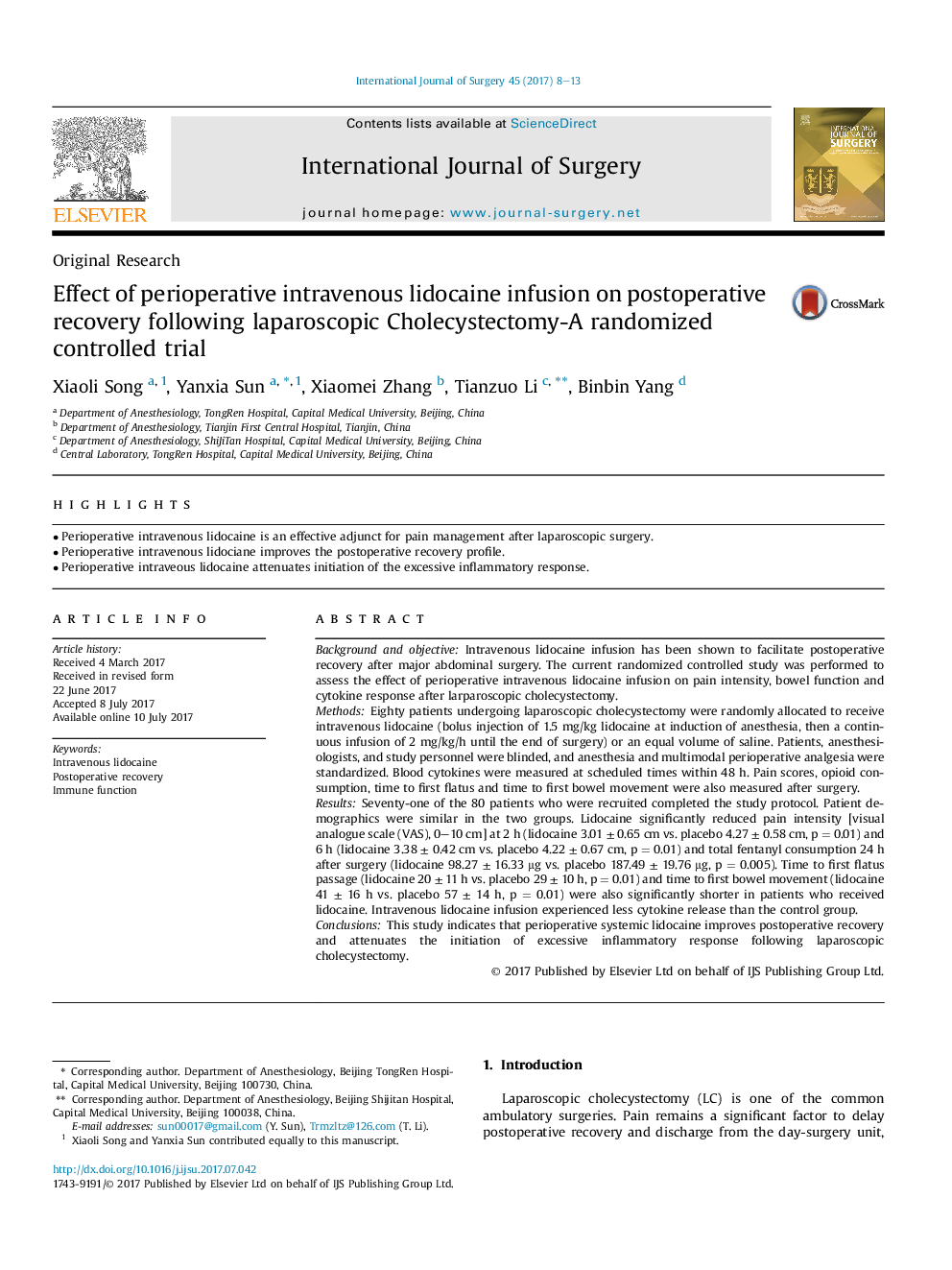| کد مقاله | کد نشریه | سال انتشار | مقاله انگلیسی | نسخه تمام متن |
|---|---|---|---|---|
| 5732018 | 1611933 | 2017 | 6 صفحه PDF | دانلود رایگان |
- Perioperative intravenous lidocaine is an effective adjunct for pain management after laparoscopic surgery.
- Perioperative intravenous lidociane improves the postoperative recovery profile.
- Perioperative intraveous lidocaine attenuates initiation of the excessive inflammatory response.
Background and objectiveIntravenous lidocaine infusion has been shown to facilitate postoperative recovery after major abdominal surgery. The current randomized controlled study was performed to assess the effect of perioperative intravenous lidocaine infusion on pain intensity, bowel function and cytokine response after larparoscopic cholecystectomy.MethodsEighty patients undergoing laparoscopic cholecystectomy were randomly allocated to receive intravenous lidocaine (bolus injection of 1.5 mg/kg lidocaine at induction of anesthesia, then a continuous infusion of 2 mg/kg/h until the end of surgery) or an equal volume of saline. Patients, anesthesiologists, and study personnel were blinded, and anesthesia and multimodal perioperative analgesia were standardized. Blood cytokines were measured at scheduled times within 48 h. Pain scores, opioid consumption, time to first flatus and time to first bowel movement were also measured after surgery.ResultsSeventy-one of the 80 patients who were recruited completed the study protocol. Patient demographics were similar in the two groups. Lidocaine significantly reduced pain intensity [visual analogue scale (VAS), 0-10 cm] at 2 h (lidocaine 3.01 ± 0.65 cm vs. placebo 4.27 ± 0.58 cm, p = 0.01) and 6 h (lidocaine 3.38 ± 0.42 cm vs. placebo 4.22 ± 0.67 cm, p = 0.01) and total fentanyl consumption 24 h after surgery (lidocaine 98.27 ± 16.33 μg vs. placebo 187.49 ± 19.76 μg, p = 0.005). Time to first flatus passage (lidocaine 20 ± 11 h vs. placebo 29 ± 10 h, p = 0.01) and time to first bowel movement (lidocaine 41 ± 16 h vs. placebo 57 ± 14 h, p = 0.01) were also significantly shorter in patients who received lidocaine. Intravenous lidocaine infusion experienced less cytokine release than the control group.ConclusionsThis study indicates that perioperative systemic lidocaine improves postoperative recovery and attenuates the initiation of excessive inflammatory response following laparoscopic cholecystectomy.
Journal: International Journal of Surgery - Volume 45, September 2017, Pages 8-13
